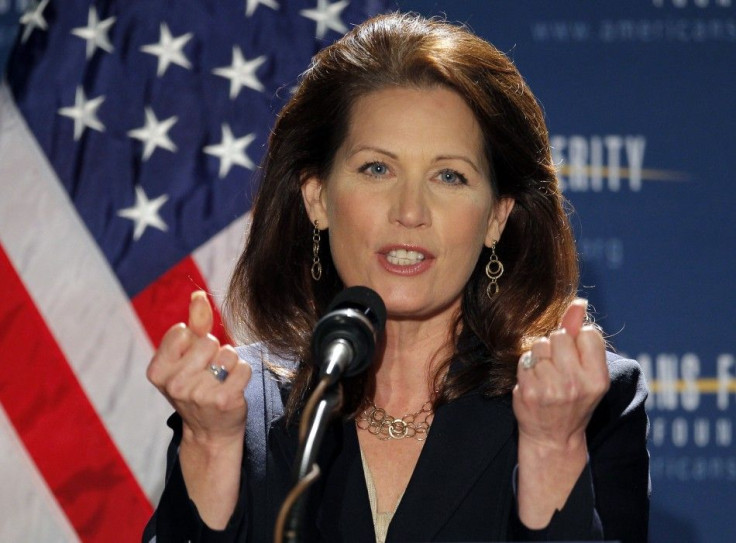Candidate Bachmann: Government Can't Help Us

Michele Bachmann reprised her Tea Party credentials today as she formally announced her campaign for the presidency, repudiating the idea that government can address America's problems.
Bachmann repeatedly referred to her constitutional conservative beliefs, hewing closely to the message of limited government that resonates with the Tea Party caucus in describing her background as a small-town Christian.
We trusted in God and our neighbors and not in government, Bachmann said. Americans still have that same spirit. But government keeps trying to erase it because government thinks it knows better -- that government can create jobs, and make a better life for all of us, even make us healthier! But that's not the case.
Bachmann said that she was first compelled to run for public office by a desire to rescue education from the heavy hand of government, contending that academic excellence was being eroded by federal government interference with the local schools. This was a less severe version of her warning, in 2001, that George W. Bush's education policies were failed ideas of a state-planned and managed economy similar to that of the former Soviet Union.
The speech bolstered the Minnesota congresswoman's reputation for condemning government involvement in various aspects of life. She explained her opposition to a state minimum wage by charging that it was stifling growth, saying that in its absence it would be possible to virtually wipe out unemployment completely because we would be able to offer jobs at whatever level. She cautioned that a bill intended to expand AmeriCorps could result in ideologically indoctrinating re-education camps for young people, and urged Minnesotans to be armed and dangerous in opposing a cap-and-trade provision in climate change legislation, arguing that the mechanism has the potential of changing the dynamic of freedom forever in the United States.
© Copyright IBTimes 2025. All rights reserved.




















